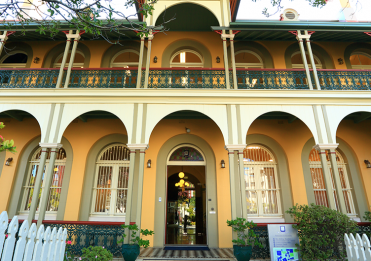Most of us are familiar with the use of quality control in factories to ensure products meet a certain standard. New goods are compared to a benchmark. What passes is packed up and shipped off for sale. What doesn’t is chucked.
This is a bit mechanical at first glance, but we humans have been doing it forever. Our minds are always watching to see if our products are up to snuff. We have our own standards, too, in the form of criteria sheets, or just as often as a set of expectations absorbed from the world around us. In the age of mass media, our standards for creation are always being adjusted and refined. Most of the stuff we bring into our own quality control gets the shredder by that measure.
The standard is arbitrary, and we all know it. Other people have different allotments of time, greater levels of experience, or flat-out different goals from our own, rendering any kind of comparison absurd. And yet we use others as yardsticks by which to measure our own ability, or really our lack of it. Surely there is more happiness to be found in letting these expectations go and allowing ourselves some enjoyment.
Unfortunately, our world seems set up to reinforce our insecurities, not to challenge them. In modern society, we are told to fight our fear of the sand trickling through the hourglass by optimising that time as much as possible. The meaning of life is to make something of that time, to leave something behind that you might be remembered by.
According to this philosophy, the answer to our woes lies in devoting every hour not spent eating, sleeping, or otherwise tending to the body’s most basic of needs to perfect productivity. When you finish school or work, you go home and work again. Uncomplicated pleasure is a waste of time. Passion is only of use when we can make something of it. It is not enough to love what we do, because love doesn’t make numbers tick up in an end-of-year performance report. Everything we love must become somehow valuable.
So, our failure to meet our own standards of achievement also becomes a failure in life. When we can’t meet our self-imposed bar, it feels as though we are wasting the finite seconds of our lives being bad at things instead of doing anything important. We stop singing, painting, writing, dancing, performing, playing, shoving our passion down so the most embarrassing pieces of ourselves aren’t open to witness.
But there’s more to life than constructing a curated legacy, more to happiness than success, and more to creation than worth or merit. Given pens and blank paper, we doodle. We sing our thoughts out loud to ourselves, often completely unprompted. If left unattended with a musical instrument for long enough, something inside us will snap and we will inevitably start playing it, even when we have no clue what we’re doing. We make up stories, we try and sculpt blobs of blu-tack, we choreograph whole dance routines based on inside jokes, we generate our own joy.
We’ve been generators for as long as we’ve been around. We’ve been making figurines since before Homo Sapiens. Making things is one of the most straightforward pleasures humans partake in. The first human romance was between our imagination and our hands—our creativity and the ability to make it real.
We get the word ‘amateur’ from French, an insult for someone unsophisticated and incompetent, in opposition with those who really know what they’re doing. But the word’s original meaning was to describe a lover of something. In the purest sense, an amateur is an enthusiast, one who does something simply because they enjoy it. When did the idea that a person might be more focused on having a good time than creating a masterpiece become so laughable? Why do we find it so hard to imagine not turning everything into a project, or a small business, or an ambition? Is it so strange to just love something? What an indictment of the modern world that we’ve convinced ourselves otherwise.
Life is not a quest for perfection. It’s an opportunity to be happy.
Forget all that. Draw funny faces in your notebook, sing in the shower, find the cardboard lying around the house and do an arts-and-crafts project like you’re in primary school again. Make something and enjoy yourself.
By Emilia Arba (12E)




